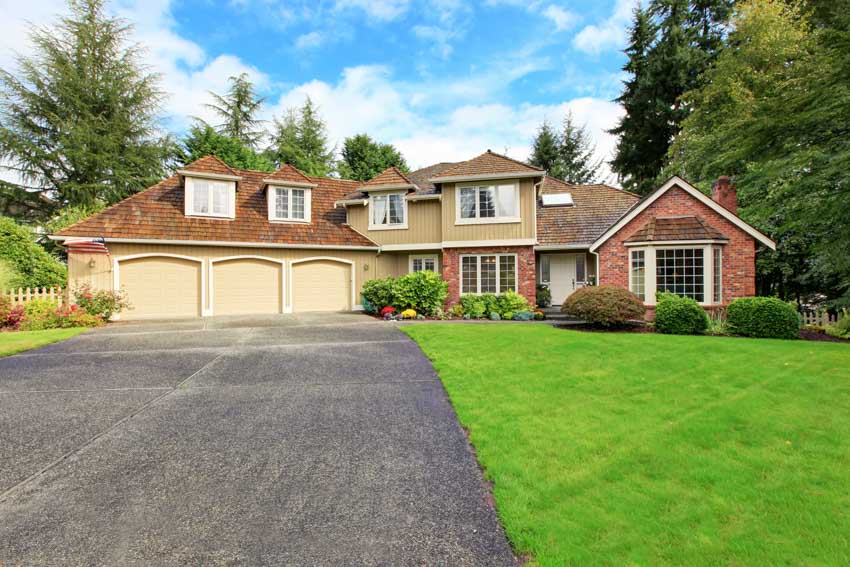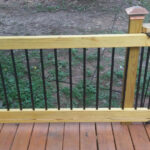Tar and chip driveway | Advantages and Disadvantages A tar and chip driveway, also known as a chip seal or macadam driveway, is a cost-effective and attractive alternative to traditional asphalt or concrete driveways. This type of driveway consists of a layer of hot liquid asphalt (tar) topped with aggregate chips.
The chips are then pressed into the asphalt to create a rough, textured surface. While less common than other driveway materials, tar and chip driveways offer a unique blend of benefits and drawbacks. This article will explore the advantages and disadvantages of tar and chip driveways in detail.

Advantages of Tar and Chip Driveways
- Cost-Effective:
- Initial Installation Costs: One of the primary advantages of tar and chip driveways is their lower initial installation cost compared to asphalt or concrete driveways. The materials used are generally less expensive, and the installation process is simpler, reducing labor costs.
- Long-Term Savings: Due to their durability and minimal maintenance requirements, tar and chip driveways can offer long-term savings. There is no need for regular sealing or expensive repairs, as is often the case with asphalt driveways.
- Aesthetic Appeal:
- Variety of Colors and Textures: The aggregate chips used in tar and chip driveways come in a variety of colors and sizes, allowing for customization to match the aesthetic of the surrounding landscape or home exterior. This can create a more attractive and personalized driveway surface.
- Rustic and Natural Look: The textured surface of a tar and chip driveway provides a rustic and natural appearance, which can enhance the curb appeal of both rural and suburban properties.
- Durability and Longevity:
- Weather Resistance: Tar and chip driveways are highly resistant to various weather conditions, including extreme temperatures, heavy rainfall, and snow. The rough texture provides excellent traction, reducing the risk of slipping during wet or icy conditions.
- Wear and Tear: These driveways are durable and can withstand significant wear and tear from vehicles. The aggregate surface is less likely to develop cracks compared to asphalt, and small imperfections can often be repaired by simply adding more tar and chips.
- Low Maintenance:
- Minimal Upkeep: Tar and chip driveways require minimal maintenance compared to asphalt or concrete. There is no need for regular sealing, and the surface can be easily repaired if necessary. Periodic sweeping or light washing is usually sufficient to keep the driveway clean.
- Self-Healing Properties: The combination of tar and aggregate chips can help to fill in small cracks and imperfections over time, reducing the need for extensive repairs.

Disadvantages of Tar and Chip Driveways
- Initial Installation Challenges:
- Specialized Installation Process: The installation of a tar and chip driveway requires specialized equipment and expertise. Finding contractors with the necessary experience can be challenging, particularly in areas where this type of driveway is less common.
- Weather Dependency: Installation should ideally be done in warm, dry weather to ensure proper adhesion of the tar and chips. This can limit the installation window and potentially delay the project.
- Surface Texture:
- Rough Surface: While the rough texture of a tar and chip driveway can provide excellent traction, it may also be less comfortable for activities such as walking barefoot or playing. The uneven surface can be harder on tires and may cause more wear on vehicle suspension over time.
- Loose Stones: Over time, some of the aggregate chips may become loose and scatter, particularly in high-traffic areas. This can create minor inconveniences and may require occasional sweeping to keep the driveway clean.
- Limited Lifespan:
- Comparative Longevity: While tar and chip driveways are durable, they generally do not last as long as asphalt or concrete driveways. Depending on the quality of materials and installation, a tar and chip driveway may need resurfacing every 7 to 10 years.
- Resurfacing Costs: Although the initial installation cost is lower, the need for periodic resurfacing can add to the long-term costs. However, these costs are typically still lower than the cumulative maintenance costs for asphalt driveways.
- Potential for Staining:
- Oil and Gas Stains: The tar component of the driveway can be susceptible to staining from oil and gas leaks from vehicles. These stains can be difficult to remove and may detract from the driveway’s appearance over time.
- Discoloration: The aggregate chips may also discolor over time due to exposure to the elements, which can affect the overall aesthetic of the driveway.
Installation Process
Understanding the installation process of a tar and chip driveway can provide further insight into its advantages and disadvantages. The process typically involves the following steps:
- Site Preparation: The existing surface is graded and compacted to ensure a solid foundation. Any existing vegetation or debris is removed.
- Application of Liquid Asphalt: A layer of hot liquid asphalt is sprayed onto the prepared surface.
- Spreading Aggregate Chips: Aggregate chips are evenly spread over the liquid asphalt while it is still hot.
- Compaction: The aggregate chips are compacted into the asphalt using a roller to ensure they adhere properly.
- Final Touches: Excess chips are swept away, and the surface is allowed to cure.
Conclusion
Tar and chip driveways offer a cost-effective, aesthetically pleasing, and durable option for homeowners seeking an alternative to traditional asphalt or concrete driveways. Their lower installation costs, customizable appearance, and minimal maintenance requirements make them an attractive choice for many. However, potential challenges such as the specialized installation process, rough surface texture, and limited lifespan should be carefully considered. By weighing the advantages and disadvantages, homeowners can make an informed decision about whether a tar and chip driveway is the right fit for their needs.

